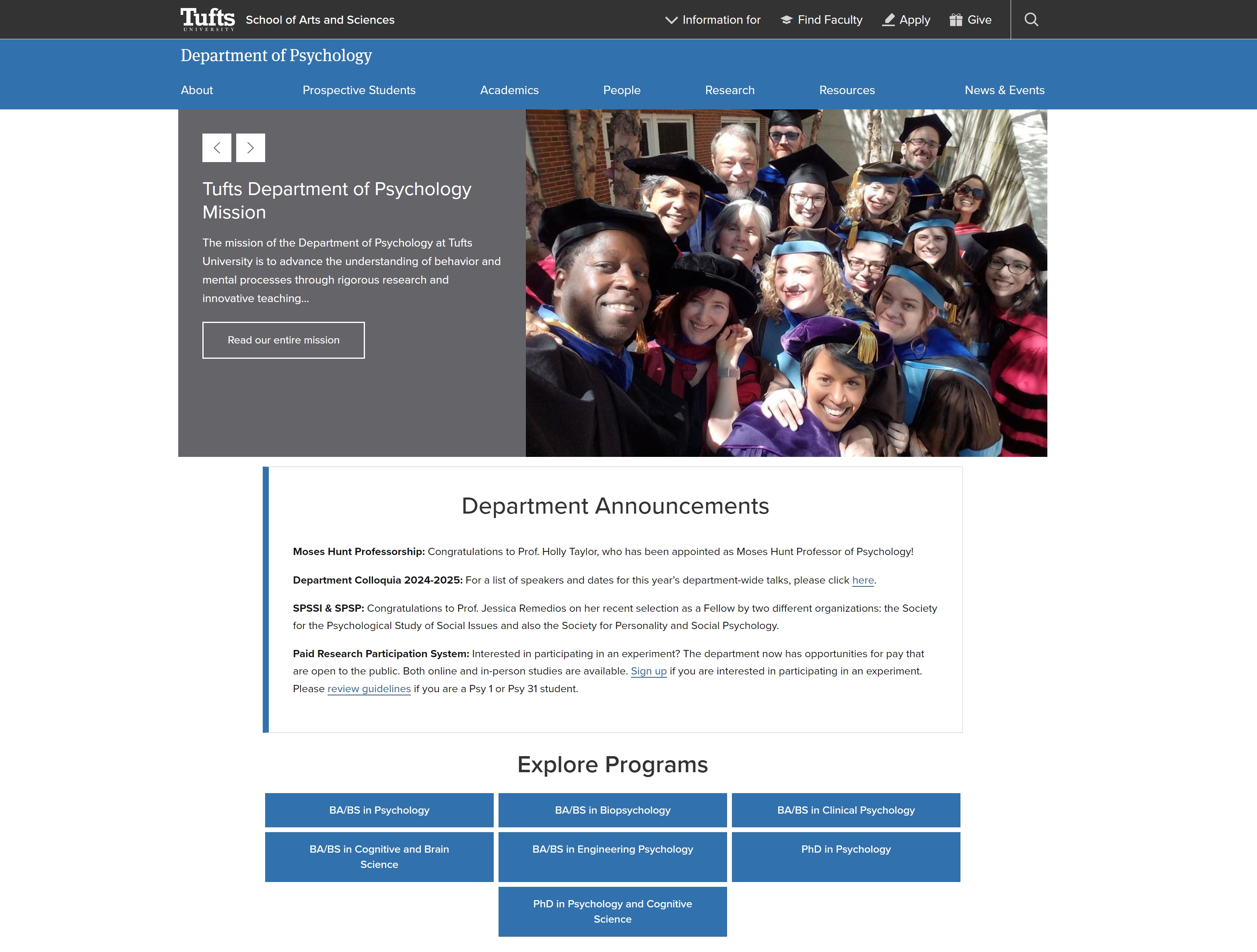
HuJi Psychology Department
The Department of Psychology at the Hebrew University of Jerusalem is one of the leading psychology departments globally, offering innovative research and teaching programs across diverse fields of psychology.

Detailed Introduction
The department is dedicated to advancing research and education in various psychological fields, including cognition, clinical psychology, developmental psychology, and neuroscience. It provides comprehensive undergraduate and graduate programs and is involved in cutting-edge research. The Psychology Department at the Hebrew University of Jerusalem houses a group of innovative psychologists conducting cutting-edge research on human motivation, emotion, cognition, and social interactions. With 24 in-house laboratories and various 'field labs,' the department is dedicated to training the next generation of psychologists and educating the public about the science of psychology.
MoreUniversity

UConn Department of Psychological Sciences - Exploring Brain, Mind, and Behavior
The Department of Psychological Sciences at UConn is dedicated to research and teaching about the brain, mind, and behavior, offering comprehensive psychology education and specialized training from individual neurons to social interactions that shape society. With over 1000 undergraduate majors and 60+ faculty across five UConn campuses, we boast 50+ externally funded grants.

Virginia Tech Department of Psychology
The Department of Psychology at Virginia Tech is a rich discipline that lies at the crossroads of biology and society. It is integral to understanding human behavior and addressing societal issues. The department's mission is to conduct research that transforms lives and inspires others on campus, in Southwest Virginia, and across the world. Highlights include the Mobile Autism Clinic, which provides services for Autism Spectrum Disorder (ASD) in rural areas, and the addition of new faculty members.

Tufts University Department of Psychology
The Department of Psychology at Tufts University conducts cutting-edge research aimed at understanding the causes and consequences of mental processes and behavior. Our work addresses social, cognitive, and neural levels of analysis. We are innovative and interdisciplinary in our approach and emphasize understanding phenomena that have a direct impact on society. Scientists at all levels - faculty, postdoctoral trainees, and graduate and undergraduate students - engage in collaborative scholarship and critical thinking in the classroom and in the laboratory. This synthesis, between research and teaching, positions us to ask and answer fundamental questions while also enriching our students' understanding of psychology.